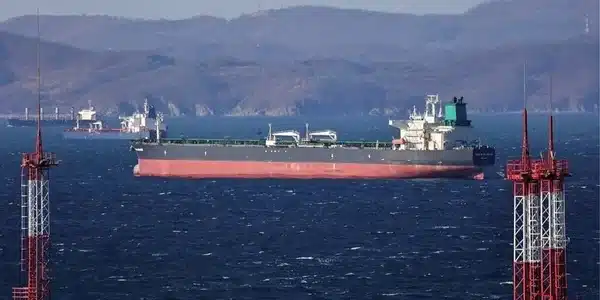India Boosts Oil Imports to Highest Level in Two Years

India has significantly ramped up its imports of Russian crude oil in June, surpassing combined purchases from Saudi Arabia and Iraq amid rising tensions in the Middle East. As the world’s third-largest oil importer, India is expected to acquire between 2 to 2.2 million barrels per day of Russian oil, marking a two-year peak. This shift in procurement strategy comes in response to market instability following Israel’s military actions against Iran, which have raised concerns about the security of oil supply routes.
India’s Shift To Russian and US Oil
In the wake of Russia’s invasion of Ukraine in February 2022, India has altered its oil procurement strategy, moving away from its traditional reliance on Middle Eastern supplies. The country has embraced substantial imports of Russian oil, attracted by significant discounts resulting from Western sanctions and European boycotts. In May, Indian imports of Russian oil reached approximately 1.96 million barrels per day. Additionally, American oil shipments to India rose to 439,000 barrels per day in June, a notable increase from 280,000 barrels per day in May.
According to Kpler, a global trade analytics firm, India’s total imports from the Middle East are projected to be around 2 million barrels per day for June, reflecting a decrease from the previous month. The shift in India’s oil import dynamics is striking, with Russian oil now accounting for about 40-44% of the country’s total crude purchases, up from less than 1% just two years ago. Sumit Ritolia, a lead research analyst at Kpler, noted that Russian oil varieties operate independently of the Strait of Hormuz, utilizing alternative routes that enhance India’s supply chain resilience.
Iran-Israel Conflict and Its Impact on Oil Supply
Despite ongoing tensions in the Middle East, oil supply chains have remained stable for now. However, analysts warn that vessel activity suggests a potential decline in crude loadings from the region in the near future. Ritolia highlighted that shipowners are becoming increasingly cautious, with the number of empty tankers heading into the Gulf dropping significantly. The Strait of Hormuz, a critical passage for oil exports from several Middle Eastern countries, is under scrutiny as military tensions escalate between Israel and Iran. Iran has hinted at the possibility of closing this vital waterway, which facilitates a significant portion of global oil movement.
India’s dependence on the Strait of Hormuz is substantial, with around 40% of its oil imports and half of its gas requirements passing through this narrow passage. Concerns about a potential closure have intensified following Israel’s military actions targeting Iranian facilities. While Kpler’s analysis indicates a low probability of a complete blockade, the geopolitical landscape remains precarious, and any disruption could have significant implications for India’s energy security.
India’s Strategic Oil Procurement Approach
India’s crude oil imports from Russia and the United States in June reflect a strategic approach aimed at ensuring stability amid geopolitical uncertainties. Should the conflict escalate or if there are disruptions in the Strait of Hormuz, India may increase its reliance on Russian oil, which offers both availability and pricing advantages. Additionally, India has the option to source oil from the United States, Nigeria, Angola, and Brazil, despite the higher transportation costs associated with these alternatives.
The Indian government also has strategic reserves that can cover approximately 9-10 days of imports, providing a buffer against potential supply disruptions. If domestic oil prices rise, particularly for diesel and LPG, the administration could implement price support measures to mitigate inflationary pressures. From June 1 to 19, Russian crude imports to India averaged around 2.1-2.2 million barrels per day, maintaining Russia’s share at over 35% of India’s overall crude imports. This trend underscores India’s calculated approach to diversifying its oil sources while ensuring operational continuity in its refining sector.
The Implications of a Potential Blockade
Iran’s heavy reliance on the Strait of Hormuz for oil exports poses significant risks for the country, especially as it exports 96% of its oil through this route. Any self-imposed blockade would be counterproductive, jeopardizing Iran’s diplomatic efforts in the region. Tehran has been working to restore relations with key players like Saudi Arabia and the UAE, both of which also depend on the Strait for their exports.
A blockade would likely provoke an international military response, as U.S. and allied forces could quickly neutralize any Iranian naval preparations. Kpler suggests that even minor sabotage attempts would only disrupt oil flows for a short period, as U.S. forces could effectively counter Iran’s conventional naval capabilities. Such actions could strain Iran’s diplomatic relations and undermine its recent efforts to stabilize its position in the region.
Observer Voice is the one stop site for National, International news, Sports, Editor’s Choice, Art/culture contents, Quotes and much more. We also cover historical contents. Historical contents includes World History, Indian History, and what happened today. The website also covers Entertainment across the India and World.
Follow Us on Twitter, Instagram, Facebook, & LinkedIn

